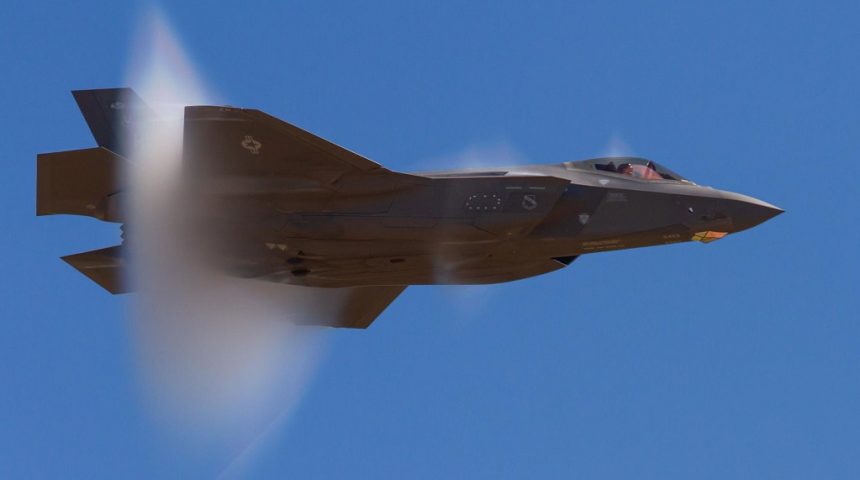The alloy is used by a contractor to make magnets for Honeywell’s turbomachine pumps.
The Pentagon has temporally stopped F-35 deliveries after officials discovered that an alloy used in magnets on the jet’s turbomachine pumps was produced in China. The Defense Contract Management Agency first notified the F-35 Joint Program Office about the potential problem on August 19, before both agreed to suspend the deliveries on Aug. 31, 2022.
The F-35 program office “temporarily paused the acceptance of new F-35 aircraft to ensure the F-35 program’s compliance” with defense regulations “pertaining to specialty metals,” said Defense Department spokesman Russell Goemaere in a statement. He also added the pause won’t interfere with operations of F-35s already delivered because “the magnet does not transmit information or harm the integrity of the aircraft and there are no performance, quality, safety or security risks associated with this issue.”
The reason behind the need for the suspension is a U.S. law and a separate Pentagon acquisition regulation that prohibit the use of certain specialty metals or alloys produced by specific countries outlined in the Defense Federal Acquisition Regulation series, which are China, Iran, North Korea and Russia. The alloy in question is a cobalt and samarium alloy “recently determined to be produced in the People’s Republic of China” and magnetized in the US, according to the F-35 JPO.
The alloy is used in a magnet contained in a Honeywell turbomachine that integrates the aircraft’s auxiliary power unit and an air cycle machine into a single piece of equipment, which that provides power for ground maintenance, main engine startup and emergency power. The magnet was provided by a “fifth-tier” subcontractor to the manufactured of the lube pump, which in turn supplies it to Honeywell.
“Honeywell has stopped work with the supplier providing alloy, and an alternative U.S. source is already on order with anticipated delivery next month,” said Lockheed Martin spokeswoman Laura Siebert. However, every one of the more than 825 F-35 fighter jets delivered so far contain the magnet made with the prohibited Chinese alloy. The component has been used in the 5th gen aircraft since 2003.
The F-35 will now need a national security waiver from the Pentagon’s top acquisition official, William LaPlante, to resume deliveries of already assembled aircraft containing the prohibited alloy. Something similar already happened a decade ago, when the Pentagon granted a waiver to Honeywell to use Chinese magnets in other F-35 components in order to avoid new delays and cost overruns. The F-35 JPO doesn’t anticipate replacing the magnets in the aircraft already delivered.








